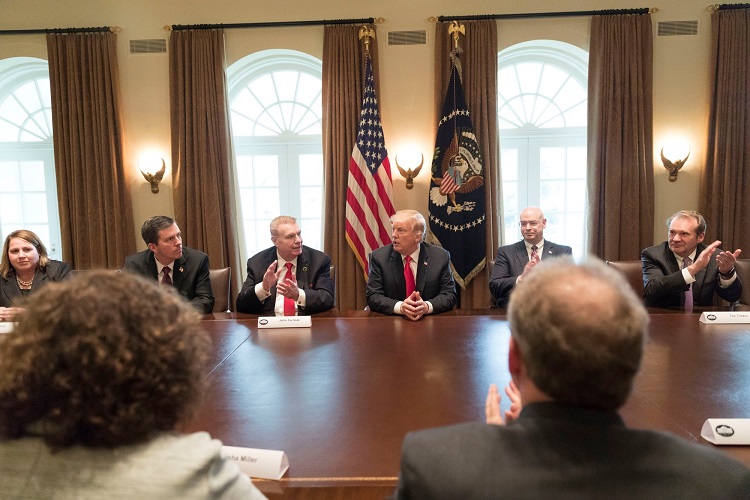

fetching latest news
News tagged in:

Oil prices ramped up on Monday after the United States and China reached a truce in their trade war. Benchmark Brent crude oil futures surged 2.6%, and were priced at $61.01 a barrel. US WTI crude futures saw an increment of 3.2%, and were traded at $52.60 per barrel. China and the United States settled over not imposing any additional trade tariffs for at least 90 days.

With the deadline of potential new round of tariffs on Chinese goods approaching, oil prices fell today in the market. International Brent crude futures LCOc1 dropped by 0.4%, to $77 a barrel. US West Texas Intermediate (WTI) crude futures CLc1 were priced at $68.47 per barrel, trading 0.4% lower from their last settlement. Experts are of the opinion that President Donald Trump will undoubtedly enact the additional levies.

India’s largest oil guzzler, IOCL, in an open house discussion organized last week, opposed the sector regulator PNGRB’s unified tariff proposal. The oil giant voiced its opposition with the argument that the proposal would only aid old LNG terminal and pipeline units; refinery input cost, however, will increase. PNGRB is of the belief that a unified tariff will help customers get rid of multiple pipeline tariffs currently being levied.

Oil majors, Royal Dutch Shell and BP Plc are looking forward to moving to a unified tariff for pipelines in India, but the firms want separate marketing and transportation business before they do so. In an open house called by the Petroleum and Natural Gas Regulatory Board (PNGRB), GAIL regarded unification of tariff as a separate exercise and said that it is not related to unbundling of their business arms.

The United States yesterday challenged the retaliatory tariffs imposed by five countries in the World Trade Organization (WTO). Donald Trump-led administration has alleged that the imposition of retaliatory tariff on US goods by China, the EU, Mexico, Turkey, and Canada, are in violation of international agreements. US Trade Representative has referred to the retaliatory tariffs to be “completely without jurisdiction under international rules”.

The American Petroleum Institute (API) has shown disappointment from US administration denial to exclude imported steel to be used in certain parts of oil and gas industry, from Section 232 tariffs. API VP believes that the process which decided whether to grant exclusion or not lacks transparency. The association has said that the decision is misguided and will impact American energy production and jobs.

Fluctuation in oil prices has continued as the rates went down today after US made new tariff threats towards $200b worth of Chinese products. While WTI Futures were trading at $73.67 a barrel, down by 0.6%, Brent Oil Futures were down by 0.81%, priced at $78.22 per barrel. Prices also slipped on the news coming from the US Secretary of State about the possibility of sanction relief to buyers of Iranian oil.

With China imposing retaliatory tariffs on American oil, US oil sellers are looking for potential buyers for their crude which can open the gates for a better relationship between India and America. However, Indian refineries are designed to process heavy, high sulfur crude, like that of Iran. American crude is light and low in sulfur, which poses a question whether India would be able to process it or not!